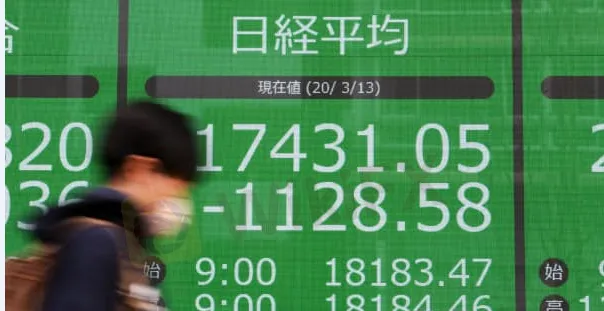简体中文
繁體中文
English
Pусский
日本語
ภาษาไทย
Tiếng Việt
Bahasa Indonesia
Español
हिन्दी
Filippiiniläinen
Français
Deutsch
Português
Türkçe
한국어
العربية
Japan May Face Deflationary Risks Again
Abstract:The continuously spreading coronavirus pandemic has put the economies of developed countries around the world to a standstill and slashed social consumption and demand, leading to oil prices which failed to recover after falling to the bottom, and US stocks that hovers in bear market.
The continuously spreading coronavirus pandemic has put the economies of developed countries around the world to a standstill and slashed social consumption and demand, leading to oil prices which failed to recover after falling to the bottom, and US stocks that hovers in bear market. Against this context, observers warn that deflation, the worst economic nightmare, may be lurking around, And Japan may be the first country to feel the shock.
Calculations based on factors such as oil prices, scheduled electricity prices and current exchange rate level suggest that as both gasoline prices and electricity prices drop, Japan ‘s inflation level will continue to be suppressed in the coming months. Moreover, if oil prices continue to fall, Japan ’s inflation rate may fall below zero as early as in April. According to Bloomberg's forecast, the factor of falling oil prices alone can make the main inflation indicators fall by 0.1% in April and 0.2% in May. Since energy accounts for only 8% of the CPI(consumer price index) Basket of Goods, price changes of remaining products can still keep the inflation rate above zero. As Japan enters a state of emergency (from April 7 to May 6), utility companies will take falling oil prices into account in their pricing plans, and general consumer prices will further decline in the next few months.
BNP Paribas, Barclays and Credit Suisse all forecast that Japan s inflation will be negative for most of the time this year and in the next two years. Judging from the current situation, Japan's economy faces high deflation risks. Due to the bleak economy, earnings of companies are breaking through the profitable bottom line, which will make businesses more cautious about investment, consumption and recruitment activities for a period of time.

Disclaimer:
The views in this article only represent the author's personal views, and do not constitute investment advice on this platform. This platform does not guarantee the accuracy, completeness and timeliness of the information in the article, and will not be liable for any loss caused by the use of or reliance on the information in the article.
WikiFX Broker
Latest News
Saxo & Portuguese Bank Partnership
SEC Fines Broker-Dealers $275K for Incomplete SAR Filings
Elon Musk Warns of Imminent US Bankruptcy | Bitcoin Retreats from $100K
WikiEXPO Global Expert Interview: Advanced Practices and Insights in Financial Regulation
Justin Sun Invests $30M in Trump-Backed World Liberty Financial
Robinhood Launches Ethereum Staking with 100% Rewards Match
Kraken Closes NFT Marketplace Amid New Product Focus
Lured by False Promises: Malaysian Driver Lost RM218K to an Investment Scam
FTX Sets March 2025 Timeline for Creditor Payouts: What It Means for Investors
What is an Economic Calendar? How it works
Currency Calculator



